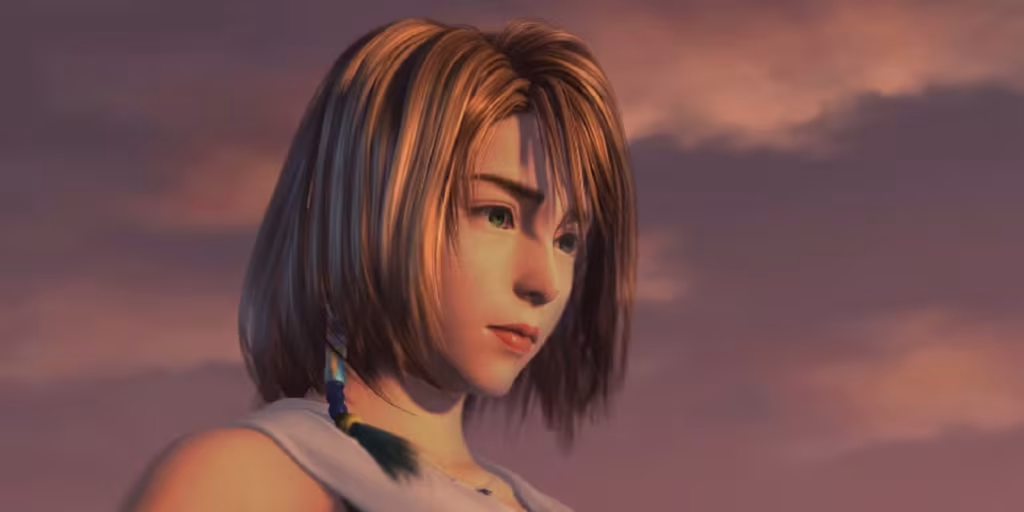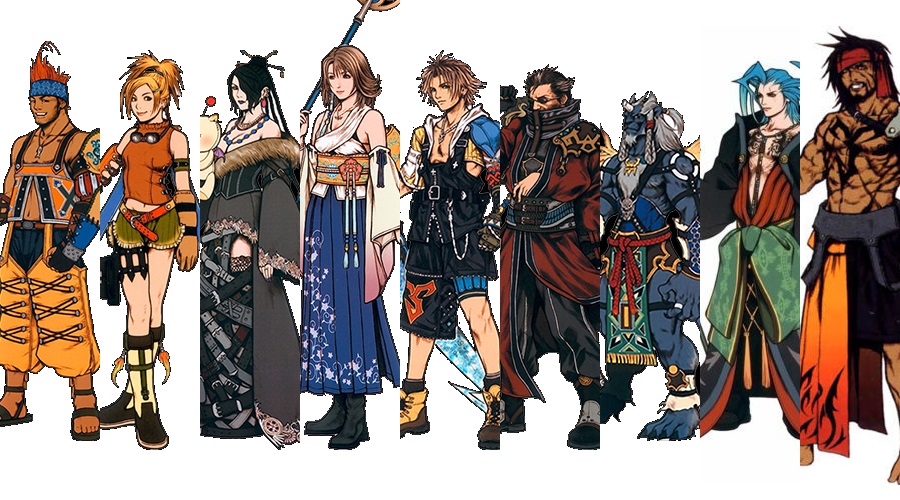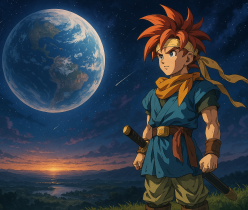Introduction: A Journey Beyond Fate
Final Fantasy X (FFX) is more than just a classic RPG—it is a profound exploration of faith, sacrifice, and the cyclical nature of suffering. At its heart, the game critiques oppressive religious systems and challenges players to question the structures that govern their world. Through its deeply emotional narrative, FFX presents a hero’s journey not just about saving the world, but about breaking the chains of tradition and carving a new path toward true liberation.
In this article, we’ll explore how Final Fantasy X critiques the institutionalized faith of Yevon, exposes the dangers of blind devotion, and ultimately delivers a message of hope: that true freedom lies in questioning oppressive systems and forging a new destiny.
The Cycle of Sin: How Yevon Controls Spira

The world of Spira is trapped in an endless cycle of destruction, suffering, and rebirth. The people live in constant fear of Sin, a monstrous entity that wreaks havoc upon their cities. The Yevon religion teaches that Sin is a divine punishment for past transgressions, and the only way to atone is through faith, obedience, and the pilgrimage of a Summoner who will sacrifice themselves to bring about the temporary Calm before Sin returns.
At first glance, this religious system appears noble—a test of devotion meant to purify the world. But as the story unfolds, it becomes clear that Yevon is not the beacon of salvation it claims to be. It is, instead, a system designed to perpetuate control, keeping people subservient to an endless cycle of suffering.
Yevon’s doctrine:
- Sin is punishment: The people are taught that Sin’s destruction is their own fault, ensuring they remain compliant and guilt-ridden.
- Summoners must sacrifice themselves: The ultimate fate of a Summoner is to die bringing about a fleeting peace, reinforcing the idea that suffering is necessary for salvation.
- Technology is heretical: The ban on machina ensures that no alternative solutions are explored, keeping power centralized within Yevon’s hierarchy.
Through this system, the people of Spira remain locked in a cycle of fear and dependence, believing that their suffering is necessary and unavoidable.
The Role of Tidus: An Outsider’s Perspective

Tidus, the protagonist, is uniquely positioned to challenge Yevon’s teachings because he is not from Spira. Unlike the other characters, who have been raised to accept Sin’s inevitability, Tidus sees the cycle for what it is—an endless loop of despair that must be broken.
As an outsider, he:
- Questions everything: Tidus repeatedly asks why things must be the way they are, a perspective that shakes the faith of his companions and forces them to confront hard truths.
- Refuses to accept unnecessary sacrifice: While others accept Yuna’s fate as a Summoner, Tidus actively fights against it, believing there must be another way.
- Challenges authority: He is vocal in his distrust of the teachings of Yevon, exposing the hypocrisy of its leaders.
Tidus’s role in the story is that of the disruptor—the catalyst for change. His refusal to accept blind faith ultimately leads to the revelation that Yevon’s system is built on deception.
Yuna’s Transformation: From Devotion to Liberation

Yuna begins as the embodiment of religious faith. Raised to believe in Yevon’s teachings, she willingly accepts her duty as a Summoner, prepared to sacrifice herself for the greater good. However, her journey with Tidus forces her to question the system she has devoted her life to.
Her key moments of transformation include:
- Defying her fate: Rather than completing her pilgrimage and accepting her death, Yuna chooses to fight for a future where sacrifice is not necessary.
- Exposing the corruption of Yevon: The reveal of Yunalesca’s truth—that Sin’s rebirth is a controlled cycle—shatters Yuna’s belief in the church’s authority.
- Becoming a leader of true change: By the end of the game, Yuna does not just destroy Sin; she dismantles the very system that allowed it to exist, paving the way for Spira’s true liberation.
Through Yuna, the game presents a powerful message: faith should not come at the cost of truth, and devotion should never require self-destruction.
Final Fantasy X’s Message: Breaking Free from Oppression
FFX ultimately offers a searing critique of religious institutions that use fear, sacrifice, and deception to maintain control. It highlights:
- The dangers of blind faith: Simply accepting doctrine without questioning its purpose can lead to cycles of suffering.
- The need for rebellion and change: True salvation comes not from adherence to tradition, but from the courage to forge a new path.
- The power of individual agency: Yuna, Tidus, and their allies prove that breaking free from oppression requires action and the willingness to challenge established beliefs.
Unlike many RPGs that focus on defeating an external villain, FFX’s real battle is against a system of control. The heroes don’t just destroy Sin—they dismantle the entire institution that enables its existence.

Conclusion: Lessons for Our World
Final Fantasy X’s story resonates far beyond the realm of Spira. In our own world, oppressive systems—whether religious, political, or cultural—often perpetuate suffering in the name of order. The game encourages players to question these systems, seek the truth, and fight for a better future.
By breaking free from Yevon’s control, the people of Spira experience something they never have before: true freedom. And through their journey, Final Fantasy X leaves us with an enduring lesson—liberation begins when we dare to challenge the cycles that bind us.


